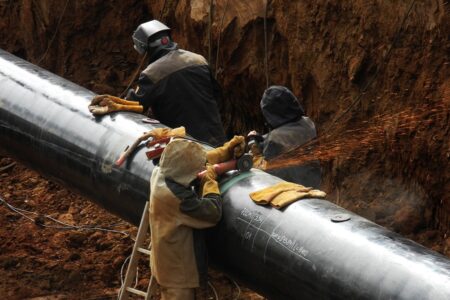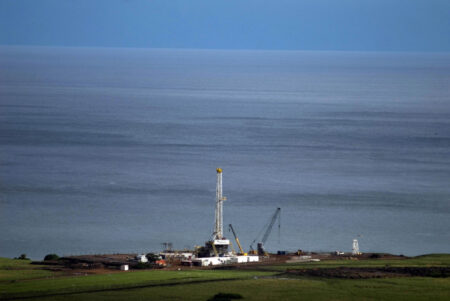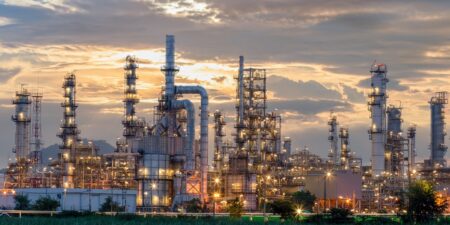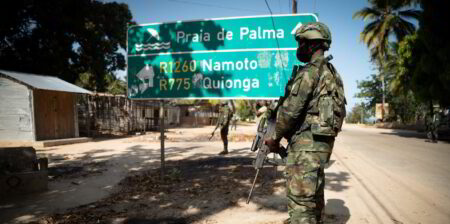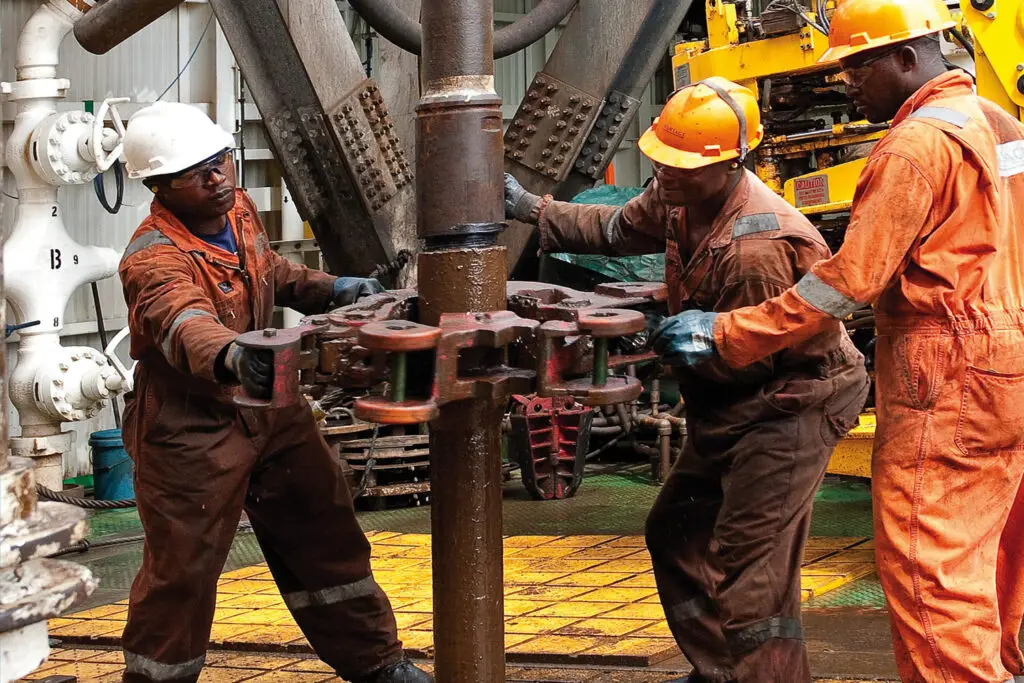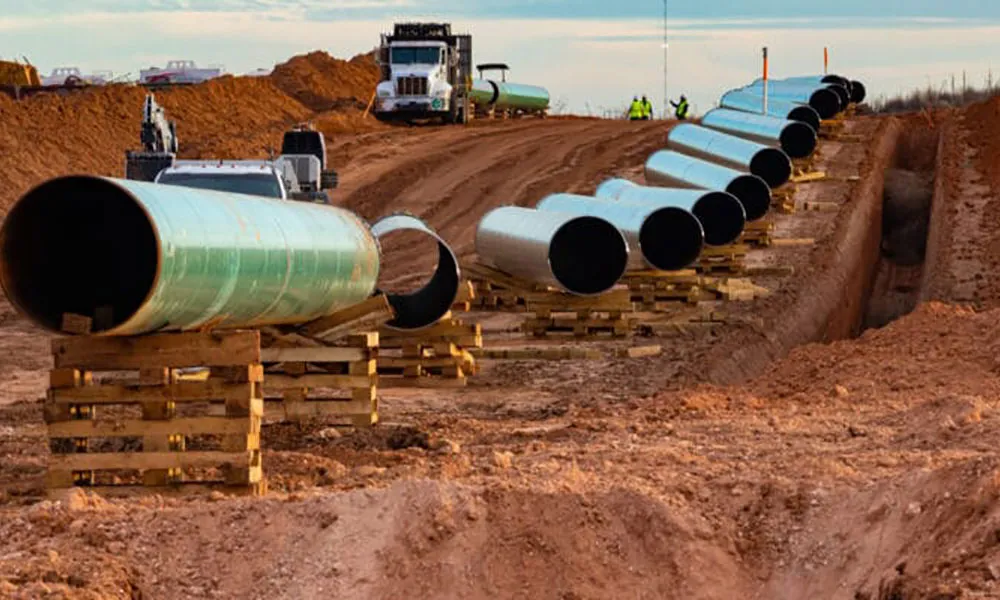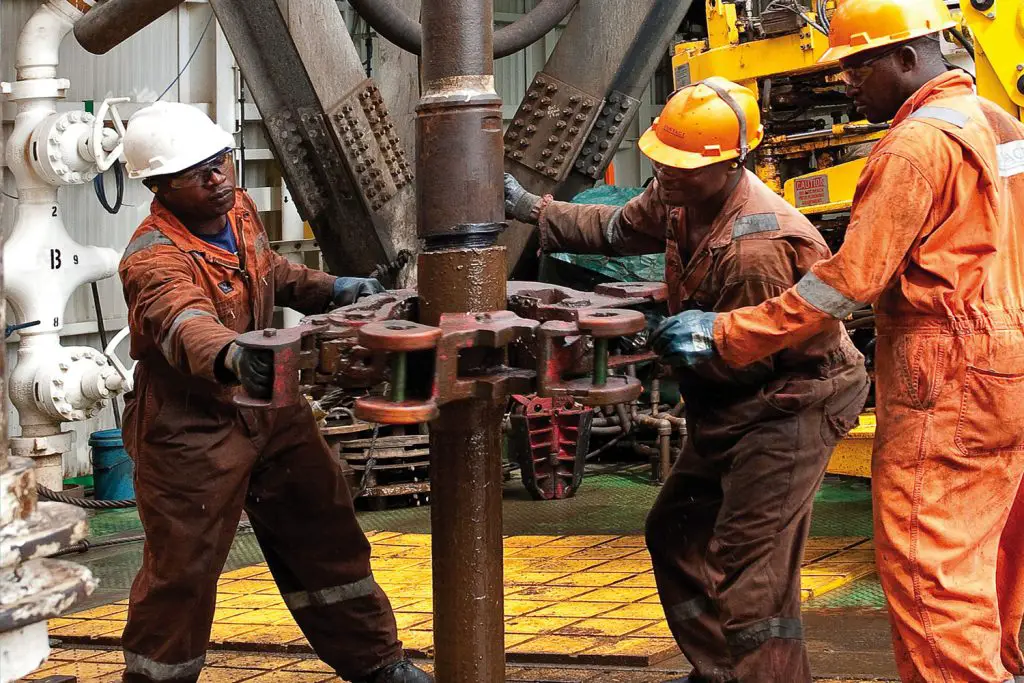- Africa’s new dawn: the rising role of digital and AI in agriculture
- Can Dangote Refinery Transform Africa Energy Ambition
- Gallup Survey: 80 per cent of Kenyan Workers Are Disengaged and Seek New Opportunities
- Madagascar Man Freed from 5KG Tumor After 15-Year Struggle
- How women in Africa are perceived and treated
- Sugar consumption in Kenya to Increase to 1.23 Million Tonnes
- Can Somalia and Turkey Oil deal Bring Change in Somaliland
- Remittances to Kenya dropped to $371.6 million in June, marking a six month low
Browsing: TotalEnergies
- The continent’s abundant resource base and untapped opportunities have already begun to attract European Investors, countries, and companies.
- Clear transition strategies and enhanced regulatory frameworks consolidate Africa’s attractiveness as an investment destination.
- With the resources available, many African countries – either oil producers or those on the verge – have begun implementing strategies to define a long-term vision for the sector.
Amid supply challenges and efforts to diversify imports, Africa has emerged as a highly strategic investment opportunity for many European Investors, countries, and companies.
The continent’s abundant resource base and untapped opportunities have already begun to attract players from across the bloc. New market dynamics offer the chance for African countries to take tangible actions to advance the continent’s attractiveness for foreign investment.
The upcoming Invest in African Energy Forum in Paris from May 14-15 has been touted as a testament to the efforts to promote investment in the …
- TotalEnergies is divesting its minority stake in National Petroleum Refiners of South Africa in line with it’s strategy to divest non-core assets.
- The firm has signed a deal to divest its 36.36 minority stake held by TotalEnergies Marketing South Africa in National Petroleum Refiners of South Africa to the Prax Group.
- The transaction is subject to regulatory approvals, consents and authorisations.
Global energy heavyweight TotalEnergies has announced plans to divest its minority stake of 36 per cent held in National Petroleum Refiners of South Africa in line with its strategy to divest non-core assets.
The firm declared on Friday that it has signed a deal to divest its 36.36% minority stake, held by TotalEnergies Marketing South Africa, in National Petroleum Refiners of South Africa (Natref) to the Prax Group.
The Prax Group is a British multinational independent refining, storage, distribution, and sales conglomerate dealing in crude oil, petroleum products, and …
- One of Africa’s biggest pipeline is the 4,100Km Trans-Sahara Gas Pipeline connecting Nigeria and Algeria oil fields.
- At 1,443Km East African Crude Oil Pipeline will connect Uganda’s oil fields to Tanzania’s coast.
- Cutting across seven countries, the Central African Pipeline System will include refineries, gas-to-power plants, and LNG terminals.
As oil and gas industries continue to grow in Africa, the construction of regional, intra-African pipelines has a huge part to play in distributing these hydrocarbons across the continent, allowing Africa to reap the benefits of its energy resources.
These benefits included improved access, availability, and affordability of energy as well as energy security. It also contributes to added revenue to the participating countries and the skills development of local companies and individuals.
Africa, a continent teeming with untapped energy potential, has long been grappling with the challenge of delivering its vast oil and gas resources to its energy-hungry populations.
With …
- Locals around Lake Albert alarmed by oil companies neglecting the essential rituals needed to preserve these places’ sanctity.
- TotalEnergies is encountering legal challenges and criticism for its environmental impact, including contributions to climate change.
- A key part of this effort is the $3.5 billion East African Crude Oil Pipeline. While it could bring economic gains and regional energy integration, it has climate and environmental concerns.
In a region where oil activities are expanding into sacred natural sites, a small Ugandan community is grappling with the encroachment on their spiritual spaces. According to AP, Alex Wakitinti, the chief custodian of these revered sites near Lake Albert, is concerned about the disregard shown by oil companies, including French giant TotalEnergies, for the significance of these locations. These sites are vital to the cultural and spiritual practices of the Bagungu community in the remote Buliisa district, adjacent to the Congo border.
Wakitinti …
Oxford Economics, a renowned economic analysis firm, released a report on Thursday, shedding light on Mozambique’s inflation trajectory. After a decline and reaching levels last seen in March 2022, experts project inflation to rise to 8.8 per cent in the final quarter of 2023. The imminent return of TotalEnergies to Cabo Delgado will play a significant role in this scenario. …
- Angola’s oil and gas sector has been placed at the forefront of African energy investment.
- Angola has regulatory reforms, infrastructure development, and exploration strategies in place.
- Natural gas will play a crucial role in the global effort to reduce carbon emissions. Angola has 13.5 trillion cubic of natural gas.
Over the past 30 years, massive Angolan oil and gas reserves have steadily positioned the southern African country as a top destination for investors. Strong returns on investment from Angolan oil and gas are now attracting even more global market players. The country’s oil-rich acreage is paying great dividends.
Angolan oil and gas current production
The nation is currently ranked as the top oil producer in sub-Saharan Africa. Angola boasts of having confirmed reserves of 11 trillion cubic feet of natural gas and nine billion barrels of oil. The majority of these reserves are found in offshore fields, especially in the …
- Several gas finds in East Africa dating decades have suffered long delays from the time they were “found”.
- Lengthy negotiations and insecurity have marred the projects, delaying a final investment decision on their development.
- Mozambique is already fighting Islamic insurgents in its gas-rich northern province, Cabo Delgado.
Economies across East Africa are losing billions of dollars in revenue every year because of key gas project delays in approving and developing liquefied natural gas investments, an analysis by The Exchange Africa reveals.
Several gas discoveries in East Africa dating decades, which were expected to power the region’s natural gas industry have suffered long delays from the time they were “found”. Lengthy negotiations, and insecurity have marred the projects, delaying a final investment decision (FID) on their development.
Mozambique’s gas finds
Take Mozambique, a regional economy of $41 billion GDP, for example. Mozambique reported huge gas finds in the 2010s. Industry …
Senegal’s oil and gas discoveries account for only 0.07 per cent and 0.5 per cent, respectively, of world reserves.
But Senegal’s Petroleum and Energies Minister Sophie Gladima said, “they are important enough to radically change the economy and industrial fabric of our country and thereby its future prospects.”
“Just exploiting our hydrocarbons will enable us to accelerate public access to electricity and, above all, to lower the cost of production and encourage industrialisation.”
She further underlined the legal framework needed to bring thousands of Senegalese jobs into the sector and the setting up of the National Institute of Oil and Gas to turn out a highly qualified workforce.
Funny enough, Namibia, also admitted as a member, is not yet producing any oil. Namibia recently announced that it would consider joining the Organization of Petroleum Exporting Countries if the oil fields are found to be large enough for commercial development.…
The ministry argued that the oil pipeline project is being implemented strictly on international safety, environmental and social aspects, including the Human Rights Impact Assessment (HRIA).
The EACOP project has managed to amass at least US$20 billion, benefiting the two neighbouring nations immensely. That’s why Tanzania is stern on highlighting key issues regarding human rights and environmental risks.
“A dedicated HRIA was undertaken as part of the project implementation process. The HRIA assessed and put in place measures for addressing the potential adverse of the project on the human rights enjoyment,” the statement pointed out.
According to the EU Parliament statement, at least 100,000 people have been forced to move out of their homes to leave the path for the pipeline.…
- Uganda, Kenya, and Tanzania are building their oil and gas economies at a very fast pace
- Algeria is Africa’s leading natural gas producer, with almost 2.4 trillion cubic meters of proven reserves
- Nigeria is Africa’s largest oil producer, and Africa accounted for approximately eight per cent of the global oil output in 2020
When it comes to oil and gas in Africa, there is plenty of potential to produce enough energy on the continent.
Africa accounted for approximately eight per cent of the global oil output in 2020. Similarly, at least 330 million metric tonnes of oil will be produced in Africa in 2020 (Statista). Global oil and gas players such as ExxonMobil, Shell, Equinor, and BP are pushing the continent forward.
The energy sector in East Africa is rapidly expanding its commercial potential thanks to Tanzania. The EACOP pipeline, upstream offshore gas projects, LNG project discussions, and various renewable …







